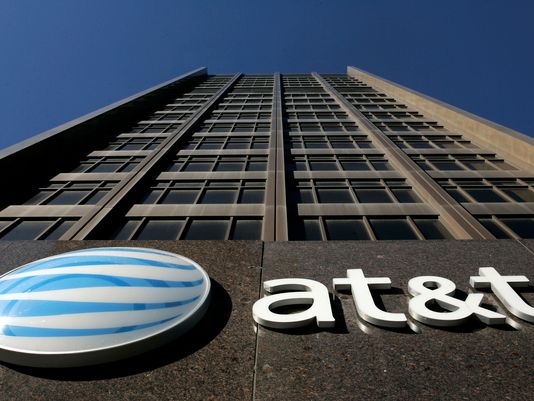Commentary: Telecoms innovating, yet still hated
Telecoms have gotten a bum rap since the 1830s. No sooner was the telegraph invented, then statesmen like Henry Clay were deeming it too important to leave to private markets. Within a few decades, Europe had nationalized its networks, and Congress debated doing the same until well into the 20th century, when scrutiny shifted toward the telephone.
At first, the common complaint was that private networks were too balkanized, and needed standardization -- and once AT&T had standardized them, it was complained that they were too monopolistic. People hated Ma Bell, they hated the Baby Bells, and today, they hate the cellular providers that slap them with overage fees and $.05 texts. The only thing that seems to have changed is that now we can download HD videos from space.
AT&T and Verizon Communications currently rule the roost, controlling two-thirds of the US mobile market. Their subscriber bases are growing, and the companies are routinely accused of trying to bring back the good old days of the Bell era. The Obama administration has announced its intention to auction off portions of the radio spectrum previously reserved for the federal government, and since AT&T and Verizon are expected to walk off with the lion's share, the two big carriers are coming under increasingly vitriolic attacks. Several weeks ago, The New York Times called them an oligopoly, and lobbyists for local and regional networks have been making the same argument in Washington. They cite the FCC, which has been "unable to find 'effective competition' in the wireless industry in… its last three annual competition reports."
Sprint Nextel and T-Mobile own the third- and fourth-largest networks in the U.S. Both are bleeding subscribers, which would be hard to explain if not for "effective competition." T-Mobile is trying to differentiate itself with a move away from carrier subsidies -- using expensive data plans to subsidize the price of a phone -- and toward simpler contracts, but its network coverage is lacking in many parts of the country. Sprint has similar coverage issues, as some customers discovered when it began offering Apple's iPhone in 2011. In recent months, the company has become a buyout target for DISH Network and Japanese telecom Softbank.
It seems that the big networks are too big, the small networks are too small, and after all this time, we're still holding out for "just right."
While opinions may not have evolved much in the last 180 years, the technology has, and innovation continues to come out of an industry that is almost never accused of it. The progression of cell networks from Edge to 3G to LTE has left customers with a vague impression of better speeds, but the truth is more spectacular.
Spectral efficiency – our ability to move data through a given frequency range – has improved 10,000% over the last decade. The result is that, while cellular data traffic has increased 2,700% since 2008 alone, the average customer today enjoys stronger and much faster connections. It's hard to comprehend this kind of growth, which is perhaps why Malthusian fears of a "spectrum crunch" continue to pop up in the media and on Capitol Hill. Verizon and AT&T are now leading an effort to explore the potential of "small cells" – miniature cell towers the size of appliances, which can be deployed in cities to split the load – and there's no sign that innovation is bottoming out.
Fears of monopoly are equally overwrought. The SMS text-messaging market used to be a walled garden for the mobile providers, but it's come under attack recently from data-based messaging services like Apple's iMessage and Facebook's messaging service. Rockstar handset makers like Apple and Samsung Electronics find themselves able to dictate terms to the telecoms, and profit margins have fallen across the board for carriers as their industry becomes more -- not less -- competitive.
Wi-fi may be the Wild West of wireless, sitting in an unlicensed, general-purpose backwater of radio spectrum, but that hasn't held it back. Today's base stations are 15 times faster than those of ten years ago. Apple recently announced its next-generation 802.11ac wireless router, which offers theoretical speeds of nearly a gigabyte/sec. Technologies like beamforming can reduce interference with nearby base stations and bring us closer to advertised speeds.
This progress seems more remarkable when considering the absurd way in which FCC and the NTIA have carved up the radio spectrum into hundreds of minor fiefdoms. Regional companies are sold universal licenses. Globalstar was given a 25 MHz band for use with its satellites, and now those frequencies can only be used in outer space; the company is asking the FCC for permission to rent them out terrestrially. TV broadcasters are sitting on more space than they need, and the administration is considering "incentive auctions" to evict them from it. Meanwhile, DISH Network would love to sell everyone wireless broadband, but its best hope for acquiring the necessary bandwidth is to buy a turnip like Clearwire.
Those waiting for perfection shouldn't hold their breath. It's worth keeping in mind, though – as the Times weighs in – that the telecom industry looks healthier today than it ever did before, and if it's not making friends, it's at least making progress.
This story was originally published on Minyanville[1].
MORE FROM MINYANVILLE
With HBO, ESPN deals, are we closer to Apple HDTV?[2]
References
- ^ http://www.minyanville.com/sectors/technology/articles/aapl-nasdaq253Aaapl-apple-inc-aapl-stock/6/24/2013/id/50471#ixzz2X8h5RQMm?refresh=1 (www.minyanville.com)
- ^ http://www.minyanville.com/sectors/technology/articles/With-Addition-of-HBO-Go-and/6/21/2013/id/50454?refresh=1 (www.minyanville.com)
- ^ http://www.minyanville.com/sectors/technology/articles/Samsung-Electronics-Co-Ltd-Unveils-Android/6/21/2013/id/50469?refresh=1 (www.minyanville.com)
- ^ http://www.minyanville.com/sectors/technology/articles/Tech-News253A-Michael-Dell-Is-Getting/6/21/2013/id/50465?refresh=1 (www.minyanville.com)










